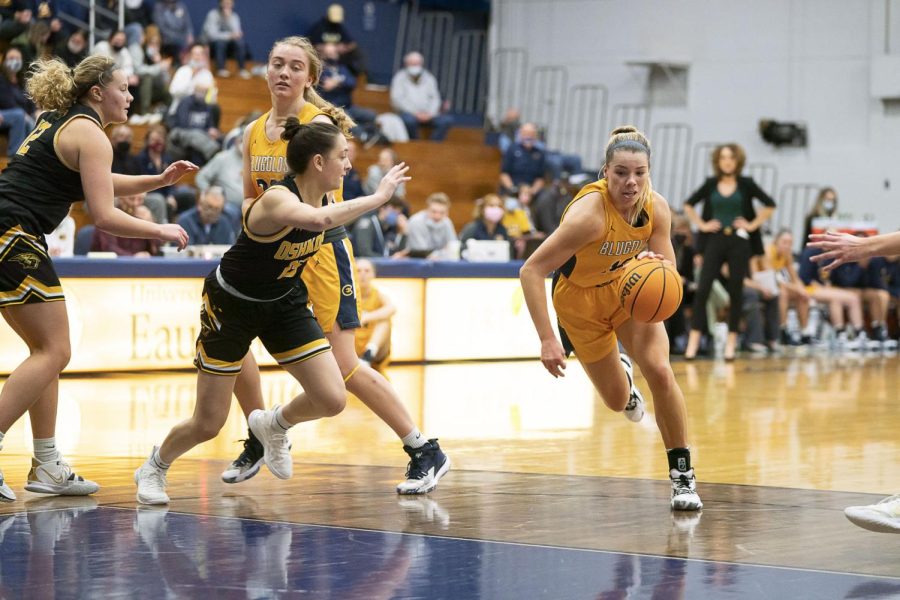Over a sports season, student athletes are guided by coaches who require practices that help them prepare for the upcoming competition.
However, during the off-season, the rigid structure created by a coach is no longer available due to restrictions created by the National Collegiate Athletic Association.
Sports seasons usually consist of 18 or 19 weeks, which are split up throughout the course of an academic year. For head volleyball coach Kim Wudi, this consists of a 13-week season in the fall and five weeks in the spring.
During any other time during the year, including summer break, Wudi said coaches are not allowed to organize practices, strength/conditioning workouts or scrimmage-like meetings.
“We can definitely talk to them, interact with them,” she said. “We can’t have any–the NCAA calls it ‘athletically-related activities.’”
Wudi said coaches recognize the need for a student-athlete to balance their training with other parts of their lives, such as being social or working on academics.
“The expectations we try to put on players is really to try to get better as far as your strengths, conditioning; try to play the sport, if possible,” she said. “I think most coaches really try to respect that off-season time.”
The coaches do provide a schedule of recommended activities that are encouraged, but not required, during the break.
Carly Fehler, a sophomore long jumper and sprinter, said being creative is a key aspect to staying within those training outlines over the summer.
“We have very specific workouts for every single day of the summer,” she said. “Some workout are improvised. Like for me, personally, if we have three running workouts a week, I’ll replace one of them with biking or swimming. It’s good for your body to get all kinds of different workouts.”
Fehler also said knowing teammates are there to offer guidance is helpful to success.
“It can be mentally hard to have that self-discipline to do it on your own over the summer,” she said. “We’re a team, so we’re a family, so I think whenever any of us has a problem there’s always a lot of helping hands to get your mind back in the right spot.”
Tom Gillman, the men’s and women’s tennis coach, said sometimes motivation is key in encouraging his team’s training when he is unable to coach them and that it is a good time for players to work on skill sets.
“The off-season is the best time to work on the techniques, because you don’t have to worry about losing,” he said. “During the season, it’s very difficult to tear something apart because it’s going to get worse for a while, so any major changes in your game need to happen in the off-season.”
Fehler said jobs get in the way for many athletes, particularly in the summer when classes are not a factor of daily life. And that the availability of facilities is definitely a problem for many student athletes she knows.
Wudi said competitors usually recognize the need to seek out facilities for practice and training, especially because it means improvement for the upcoming season in their sport.
“The expectations are such that if they don’t work out, if they don’t try to get better in the next season, the chance of them getting beaten out in the next season is probably pretty high,” Wudi said. “I think most of our athletes realize they have to put some time in on their own in the off-season.”





